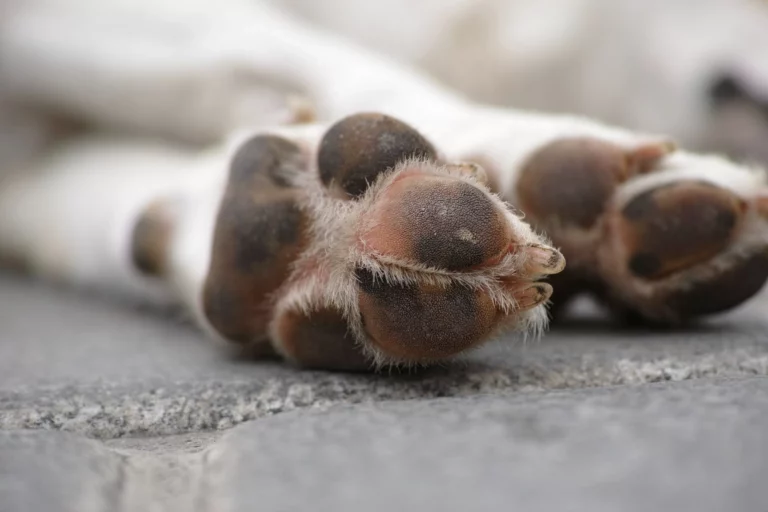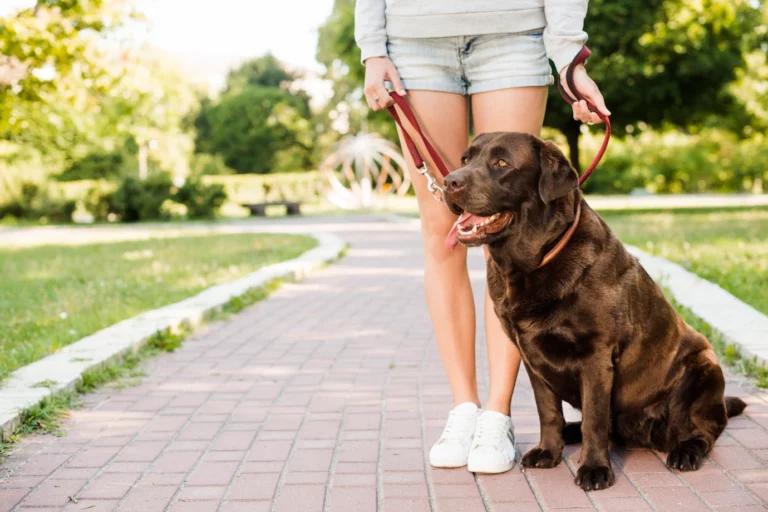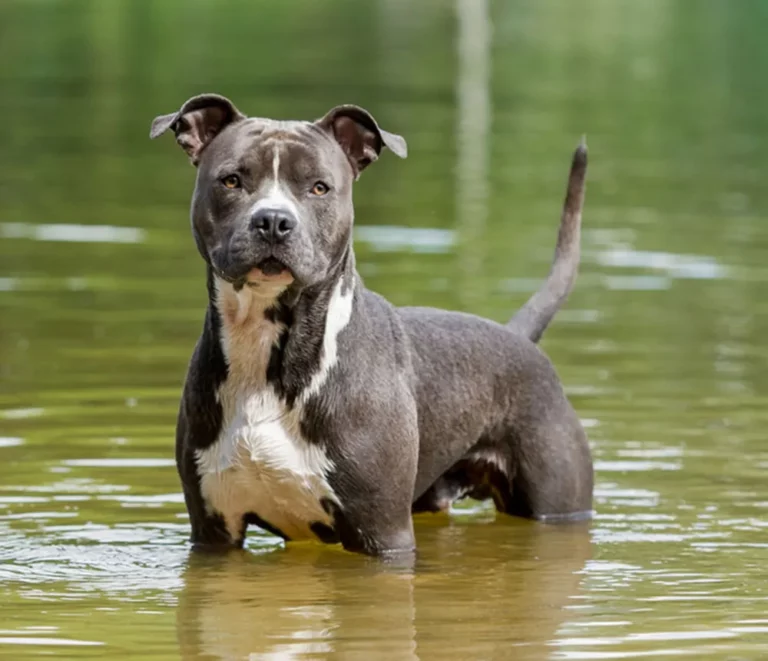Poisoning in Dogs Symptoms [5 Signs Your Dog Has Poisoning]
Your dog is not just a pet; they’re a cherished member of your family. Their well-being is your top priority, which is why it’s crucial to recognize the signs of potential dangers, like poisoning.
Just like humans, dogs can encounter a variety of substances in their environment that are harmful if ingested.
In this post, we’ll delve into the critical topic of poisoning in dogs. We’ll discuss various symptoms that could indicate your dog has ingested something toxic, helping you take quick action to protect your four-legged friend’s health.
Remember, when it comes to poisoning, every second counts.
Let’s help you stay one step ahead for the safety and well-being of your beloved pet.
Key takeaways
Poisoning in dogs can be caused by various sources.
Recognize common signs like vomiting, weakness, irregular heartbeat.
Act immediately if poisoning is suspected, don’t induce vomiting without vet’s advice.
Keep a pet poison hotline number readily available.
Make sure your pet’s environment is free from toxins.
Regular vet check-ups help prevent poisoning and monitor health.
How do I know if my dog has been poisoned? 5 Crucial Signs Your Dog Has Poisoning
The 5 key warning signs of poisoning in dogs are:
1) Vomiting & Diarrhea
Vomiting and diarrhea are two of the main signs that your dog may be suffering from toxicity.
If your dog is vomiting and having diarrhea, it’s important to get them to the vet right away.
2) Salivation & Drooling
Salivation and drooling can be one of the first poisoning signs you may encounter in your pup.
Your dog might react to the poison by drooling and having too much saliva build up in its mouth.
Dogs that are salivating should have any potential danger removed from them before any further medical action is taken.
3) Weakness/Lethargy
Another one of the key warning signs of poisoning in your dog may be weakness or lethargy.
If your dog is lethargic, unresponsive or appears weaker than usual, they could be experiencing poisoning symptoms.
Immediately seek immediate medical attention and determine what the source of the poison is.
4) Disorientation or Confusion
Disorientation or confusion can be one of the late-stage signs of poisoning in your dog.
If your dog is having difficulty finding their way around, bumping into furniture more often than usual, becoming stuck in corners or appears to be lost in a familiar environment, they could be experiencing cognitive impairments due to exposure to an external toxin/poison.
5) Abnormal Breathing or Difficulty Breathing
Difficulty breathing, or breathing at an abnormal rate, can also be a sign of poisoning in dogs.
This can range from loud and laboured breathing, to wheezing with shallow breaths.
Throat swelling may also occur as a result of ingested substances, which may cause coughing or difficulty getting air through their nose/snout.
If your dog is exhibiting these symptoms, they need immediate medical attention.
Signs of plant poisoning in dogs
Like the symptoms described above, plant poisoning in dogs can cause mild to moderate stomach irritation. This can result in signs such as vomiting, diarrhoea, severe salivation/drooling and abdominal pain.
The severity of the symptoms often depends on the number of poisons ingested.
How long does it take for a dog to show signs of poisoning?
Some symptoms of poisoning in dogs can appear almost immediately or take several hours/days to manifest and fluctuate in severity.
Long-term effects of poisoning in dogs
There are a variety of poisons that can be ingested, inhaled, or absorbed through the skin.
Pesticides, rodenticides, heavy metals, and some prescription drugs are some of the most common poisons.
Long-term effects from these toxins can range from organ failure to decreased lifespan.
In severe cases, exposure to certain toxins can cause permanent neurological damage.
Dog owners need to be aware of the potential risks associated with poisoning and take preventive measures to protect their pets. These are discussed in more detail below
Determining the source of the poison
An important step in recognizing the severity of long-term effects is determining the source of the poison.
If you have reason to believe your dog has been poisoned, it is important you seek medical care immediately.
Owners should identify the likely source (such as a spilled pesticide) and provide this information to their veterinarian.
This can help determine what type of toxin may have been ingested and its long-term implications for your dog’s health.
Prevention strategies for keeping your dog safe from poisoning
There are steps you can take to help ensure your dog remains safe from poisoning.
Create a “safety zone” where chemicals and other dangerous substances are kept out of reach, as well as monitoring forbidden foods (such as chocolate or toxic plants) that may be present in the home.
Additionally, check your dog for parasites such as ticks, fleas, and lice which can carry diseases or cause serious allergic reactions.
Finally, stay up to date with their vaccinations and learn about any known toxins in your area.
What should you do if your dog has been poisoned?
If your beloved pooch has ingested something toxic, it’s important to act quickly.
But the good news is that if you take the right steps, your dog can\ make a full recovery from poisoning.
Here’s what you should do if your dog has been poisoned:
1. Contact your vet immediately
If you think your dog has eaten something toxic, contact your vet immediately.
Your vet will be able to assess the situation and provide specific advice on what to do in that particular case.
In some cases, such as when the ingestion was recent and the substance is known, a veterinarian may call for inducing vomiting.
They might also provide prescriptions or over-the-counter medicines to counteract the effects of poisoning.
It’s best to get professional help from your vet as soon as possible rather than trying to treat it yourself at home.
2. Identify the substance ingested, if possible.
Knowing what type of substance your dog has ingested is an essential step for recovery.
If it’s not immediately clear (like in the case of household products or medications), you can try and identify the product from its packaging.
Additionally, you can ask any other pet owners who may have seen the ingestion whether they know what it was.
Every home should also keep a record of the types of potential poisons kept around the house in case of emergencies. It’s very helpful to bring this with you after informing your vet about the situation.
3. Provide supportive care at home
Supporting your dog’s vital functions and providing some proactive therapies at home can help them on the journey to recovery.
Replenish lost minerals, vitamins, electrolytes and fluids to help your dog’s recovery. This will as well as reducing symptoms such a nausea.
Alongside this, gentle care such as keeping their environment free from stressors and supplementing their diet can also be beneficial.
4. Check your pet’s vital signs
After your dog consumes something poisonous, the first thing to do is to check their vital signs (respiration, heart rate and temperature).
This helps you determine the severity of any poisoning and to identify fatal symptoms such as diarrhea, vomiting, drooling or shallow breathing.
If they are showing any signs of distress, it is important to get them to an emergency vet clinic immediately.
5. Look out for any recurring symptoms
Once your dog is out of harm’s way, you should be sure to keep a close eye on them over the next few days.
As your pup recovers, watch out for any recurring symptoms and be aware that some types of poisoning may take longer to have an effect.
This can include allergic reactions or delayed toxicity, which can cause organ damage if not treated enough.
If in doubt, speak to your vet; they will be able to advise on the best course of action based on the type of poisoning and individual health of your pet.
Final Thoughts
Keeping our beloved pets safe from potential toxins is an important aspect of pet ownership. Understanding the signs of poisoning in dogs enables swift action, potentially saving your dog’s life.
If you ever suspect your dog may have ingested something toxic, contact your vet or a pet poison hotline immediately. Regular vet check-ups can also help ensure your dog’s health and well-being. But above all, prevention is key.
Be proactive in making your home a safe and toxin-free environment for your dog. With careful vigilance, we can ensure our furry friends enjoy a happy, healthy life.






